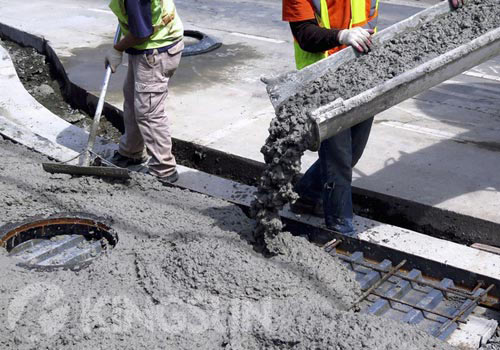Concrete workability means that the concrete mixture is easy to construct and operate (mixing, transportation, pouring, tamping) and can obtain uniform quality and densely formed concrete performance. Workability is a comprehensive technical property, including fluidity, The meaning of cohesion, and water retention.
Fluidity: refers to the performance of fresh concrete that can flow under its own weight or mechanical vibration, and fill it evenly and densely into all corners of the formwork.
Cohesion: It is the performance of fresh concrete that has a certain cohesion between its constituent materials during the construction process so that the concrete does not delamination and segregation.
Water retention: the ability of fresh concrete to keep moisture from being separated out during the construction process.

The main factors affecting the workability of concrete:
(1) Composition materials: including cement properties, water consumption, water-cement ratio, aggregate properties, etc.;
(2) Environmental conditions: including temperature, humidity, wind speed, etc.;
(3) Time: As time goes by, part of the water evaporates or is absorbed by the aggregate, the mixture becomes dry and thick, and the fluidity decreases.
